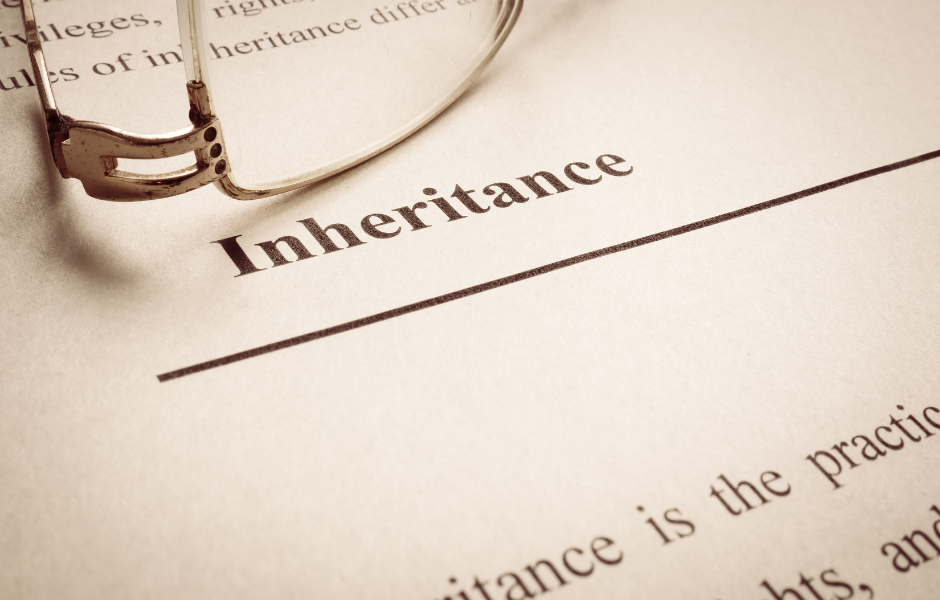Every person who has a lot of assets or property in Hong Kong certainly thinks about a lot of things in the future about how to manage these assets and property so that they can continue to be passed on to the family. One way to ensure that every asset will be distributed according to your wishes if something happens to you in the future is to make a will. A will is a legal document that serves to show someone's wishes regarding how their assets and property will be distributed after their death. The Wills Ordinance is a law that regulates wills in Hong Kong. We will explain what happens if you make a will, and what about Hong Kong inheritance law no will.
Is a will necessary?
It's necessary if you want to pass on your assets and property to your family or appoint a specific person and hand over everything after you die. The High Court can find out what you want for your assets according to your will, whether you want to divide them equally between close family members, friends or charities.
There are many cases of disputes over the assets of someone who died because there was no will, and the High Court will deal with it in accordance with inheritance law and is called intestate (a Hong Kong resident dies without a will, there is a fake will, or the valid will has been revoked).
Making a will is necessary to ensure that you want to distribute assets according to your wishes without coercion by anyone, and there are witnesses who witness that you make the will in a physically and mentally healthy condition. Although the beneficiaries of your will do not have to know when you make the will and cannot be witnesses, as long as the will is valid, someone named in the will can take care of the deceased's assets later.
Is making a will in Hong Kong difficult?
The Hong Kong inheritance law no will, will be more difficult to administer and the process will take longer compared to someone who has prepared a will in advance. Making a will in Hong Kong is not difficult, but you have to understand several conditions so that your will can be valid.

The main conditions for a will must be in writing, signed by the testator and can only be valid if it shows a true intention of the deceased's wishes. The will maker must be physically and mentally healthy and over 18 years old. To make it easier to manage your family's will, please make a will in Chinese or English.
The Wills Ordinance has a lot of important information regarding the procedures for making a will in Hong Kong.
The form and signing the will must be written by the testator or other person appointed in his/her presence or in accordance with his/her direction. The validation sign is in the form of a fingerprint or signature from the testator. There must be signatures from 2 witnesses who come during the procedure. And the duties of the witnesses saw directly when the testator wrote and signed the will, and the testator saw them both sign the same will.
Making a Will in Hong Kong
A person named in a will needs to arrange a Grant of Probate and wait for a decision from the High Court regarding the assets they will receive. The time for managing assets varies, depending on how much property is left behind by the asset owner and how complex it is.
How someone's assets are going to be distributed in Hong Kong?
Dividing assets will be easy if it is written in detail in the will. But this will be different from Hong Kong inheritance law no will. You can take care of the assets of a deceased person by taking care of a Grant of Letters of Administration. The High Court will award a Grant according to the priorities written in section 4 of the Intestates' Estates Ordinance.
- If the deceased leaves only a spouse, without descendants, parents, brothers or sisters of the same parents, then the surviving spouse is entitled to the residuary estate (the assets minus the deceased's taxes, debts, funeral, legal and administration expenses from the estate).
- If the deceased leaves behind a spouse and descendant(s), whether or not survived by his/her parents or siblings, the surviving spouse gets all of the deceased's personal chattels, and a sum of HKD500,000 from the residuary estate. If after HKD500,000 has been paid and there is still remaining amount, it will be divided in half. One half will be divided to the surviving spouse, and the other half will be divided equally among the child(s) of the deceased.
- If the deceased leaves a spouse, parents, siblings, but no descendant(s), the parents and siblings get a share in the deceased's estate, even if their spouse survives. With rule the surviving spouse gets all of the deceased's personal chattels, a sum of HKD1,000,000 from the residuary estate, and the remaining sum would be divided in half. One half will be shared with the surviving spouse, and the other half will be shared with the surviving parent(s). If one or both parents survive, the siblings cannot get a share of the deceased's property. They will only get part of the estate if the deceased leaves no descendant(s) and no parents.
- If the deceased leaves descendant(s) but no spouse, the residual estate will be distributed according to the rules: divided equally among the children, and the grandchildren will not get any part of the estate. However, if a child has predeceased the person who died and left behind his own children, then the children of the child who died will take the share that should have been given to the child who died (if there is more than one person then it is divided equally).
Regulations for Hong Kong inheritance law no will
You can read all matters regarding the distribution of assets of someone who has died without a will in the Intestates' Estates Ordinance. Even if the deceased person does not administer the will, the High Court still has priority in accordance with inheritance law as to who is entitled to receive the assets. If there is a spouse, child, parent or sibling who is abroad or the Hong Kong resident has assets abroad, then this will be handled according to cross border.
There are many possible cases such as someone who has assets in Hong Kong or vice versa. This is all regulated in the Wills Ordinance, and you need to read it in detail so that you are not confused about how to manage the estate and property of the family of the person who died.
If by chance there is a person who does not have any family left in Hong Kong, and the High Court has been waiting for some time, no one has reported to obtain a Grant of Letters of Administration, then the state has the right to deal with the assets left behind or become unowned property according to with written inheritance law.
There are many things that we need to know about wills, so we must immediately make a will for our family in the future. To make it easier for our family later to take care of our valid will, you need an agency to be our advisor on how to make a will in accordance with our intentions, and appoint witnesses so that the will complies with the existing provisions. SMEBrothers provides will making, consultation and professional cross-border estate notarization services to ensure that the estate can be properly managed and distributed. 💪💪

Services in SMEBro include:
✅ Estate Survey and Assessment: A comprehensive survey and assessment of the estate will be conducted to ensure that all assets and liabilities are clear.
✅ Legal process guidance: A professional legal team will assist you in completing various legal procedures required for cross-border inheritance distribution to ensure that everything is legal and compliant.
✅Careful follow-up throughout the entire process: We have professional teams from Hong Kong and Mainland China who are familiar with inheritance matters and can help you break cross-border barriers and successfully inherit your inheritance.



